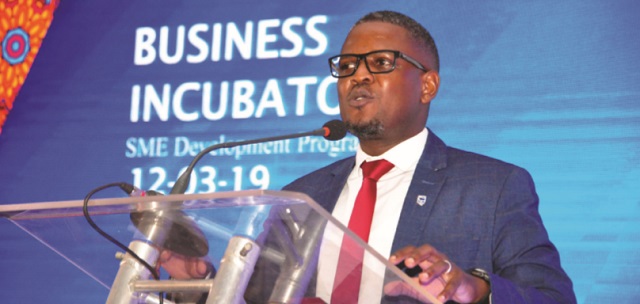
What local businesses need to reap from the lucrative sector
Kampala, Uganda | JULIUS BUSINGE | There is need for partnerships, connections, networking, trust, perseverance, access to credit, and promising what you can deliver.
These were the messages that most speakers that took part in Stanbic Bank’s second edition of the annual enterprise conference held at Hotel Africana on March 12 told heads of businesses in the gas and oil industry.
Held under the theme ‘unlocking the oil and gas opportunities for local enterprises,’ the conference attracted slightly over 500 high minded entrepreneurs to share experiences on how to sustainably grow their businesses
It comes at the time Uganda is in the process of developing its oil and gas sector, a head of oil and gas production in the next three to four years.
Stephen Segujja, the Stanbic Bank head for enterprise banking said as Uganda becomes an oil and gas producing nation, it is important to ensure businesses prepare early enough to maximise the sector opportunities.
“Small and medium enterprises are eager to be in this space and we are here to support them,” Segujja said.
Available data from the ministry of energy indicates that Uganda’s oil and gas sector is expected to attract investments of about $20billion, with about $6billion expected to be retained into Uganda’s economy in the development stage of the sector.
“It is therefore important to prepare SMEs to help them tap into these opportunities, win contracts and be part of the value chain that is going to deliver first oil,” Segujja added.
According to Uganda Bureau of Statistics, Ugandan small businesses contribute 40-50% of Gross Domestic Product (GDP) making them engines of growth that account for up to 99% of Ugandan businesses.
There are 250,000 registered SMEs in the country but most of these are informal and lack the tools to keep them sustainable.
 The Independent Uganda: You get the Truth we Pay the Price
The Independent Uganda: You get the Truth we Pay the Price





